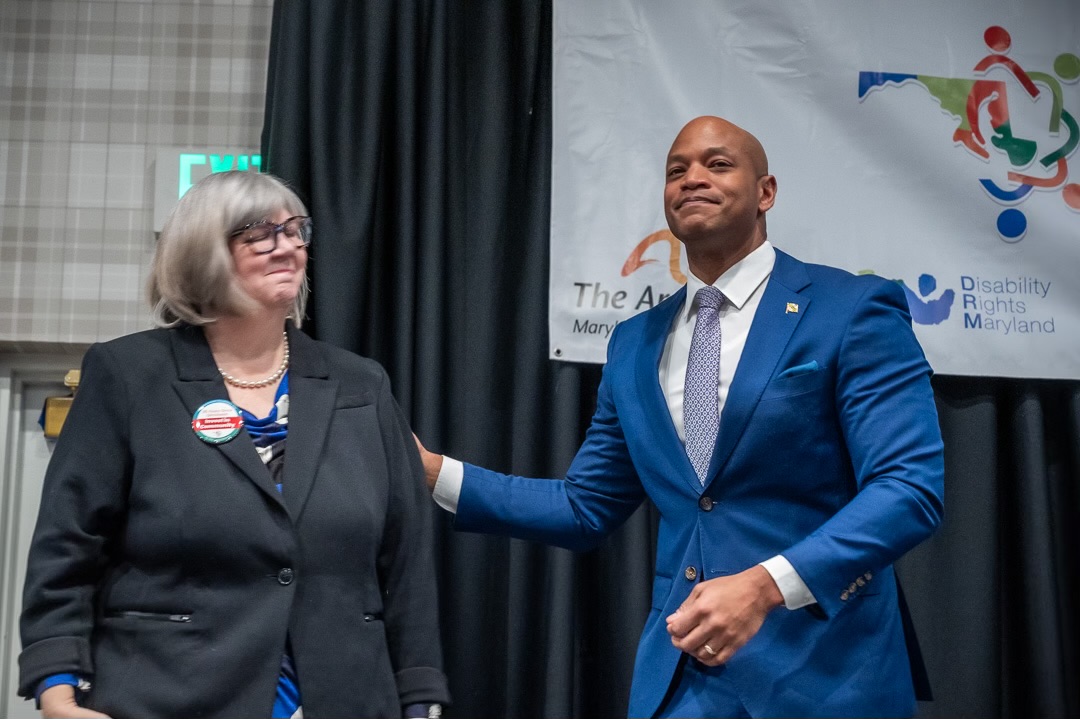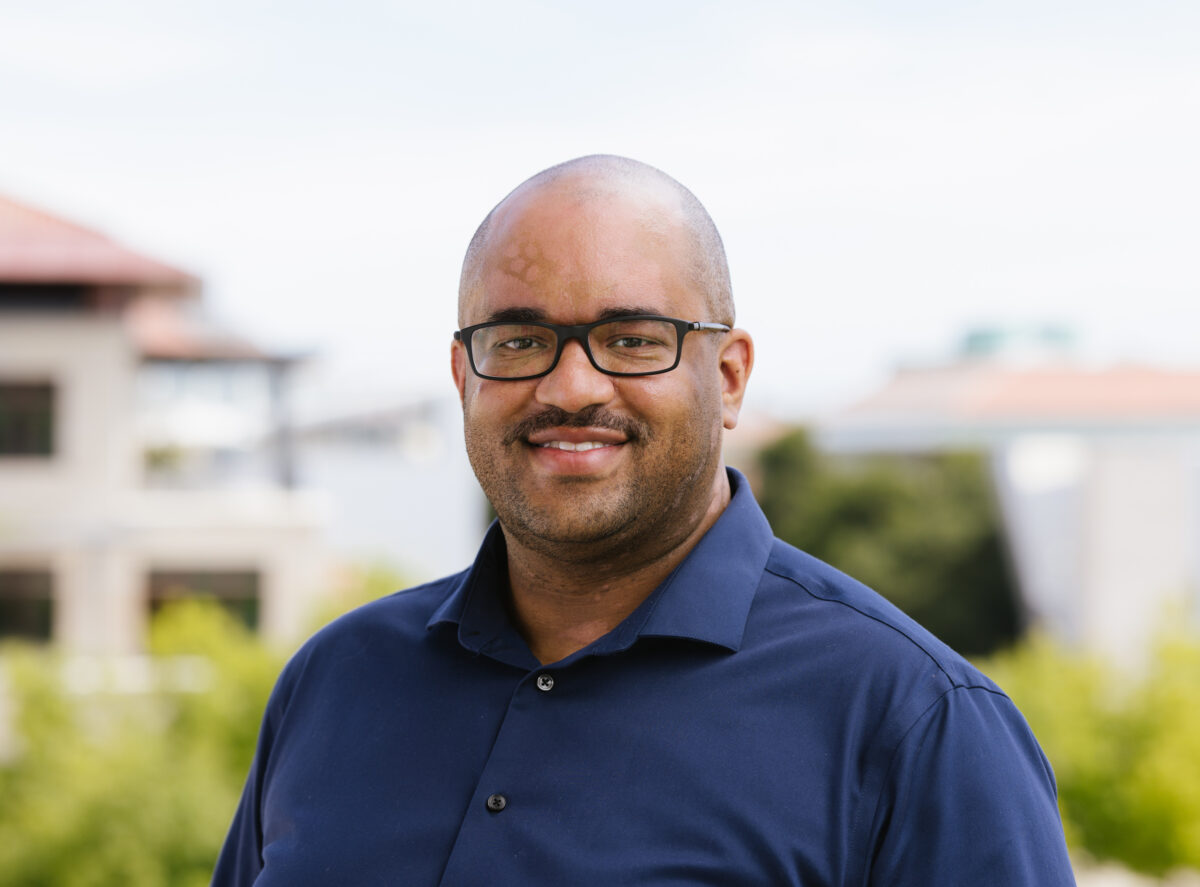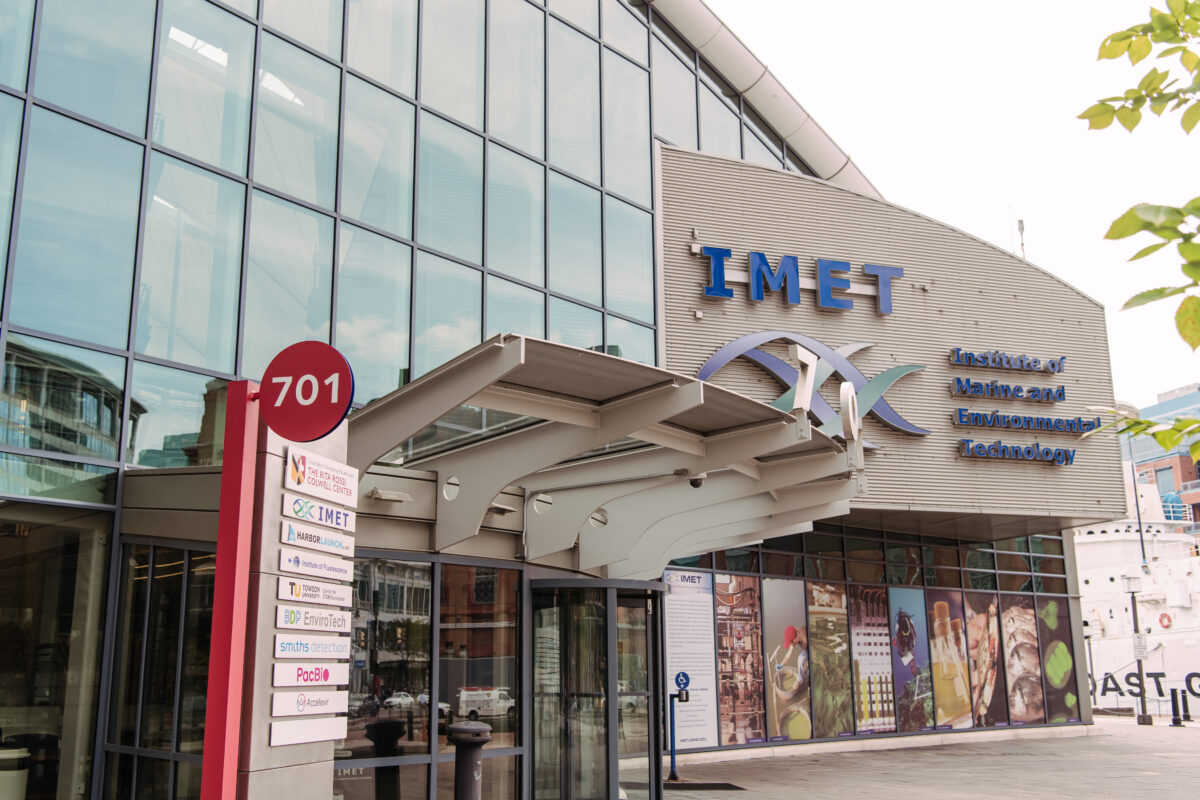Supporting Undergraduate Research
UMBC’s emphasis on undergraduate research is one of its most distinctive strengths. Opportunities to conduct independent research—both on and off campus—are supported with grant awards and faculty support, so that research can be a part of any undergraduate’s learning experience. Each year, the UMBC community celebrates the scholarly and creative accomplishments of its undergraduates at Undergraduate Research and Creative Achievement Day (URCAD). On Wednesday, April 27, approximately 60 students will present their work to the campus community and the general public. (Events will be held on the 7th Floor of the Albin O. Kuhn Library.)
Founded in 1997 by the Office of the Provost, URCAD features oral presentations and poster sessions, as well as artistic exhibits and performances. Students can also apply for Undergraduate Research Awards (URA) to fund their research; 28 such scholars received 2004-05 URA awards and are among this year’s URCAD participants. Four students will go on to present their research at the National Conference on Undergraduate Research.
“The importance of undergraduate research is re-enforced each year at this time,” said Provost Arthur Johnson, “as I hear about URCAD participants and Provost Undergraduate Research Award winners receiving their acceptances into graduate school or winning their first job, due in large part to their experiences and success with undergraduate research. This is another UMBC opportunity that offers students a learning experience with intrinsic as well as practical value.”
For most UMBC undergraduates, research experience—and support from both the Provost’s Office and their academic departments—is a central part of their education, and begins long before they apply to present at URCAD. What’s more, the depth of the experience prepares them for graduate school and professional careers.
Senior Aaron Ralby, English/modern languages and linguistics, whose research on a poem by W.B. Yeats initially began as a project for the English Honors Program, said, “My undergraduate thesis has not only taught me how to write a longer scholarly work, but has also prepared me to go into graduate school with confidence. Next year, when I work toward a master’s in philosophy at Cambridge University, I will have to submit a thesis of approximately the same length as the one I am writing now. I know that my research has given me the training to succeed in graduate school.”
URA recipient and visual arts major Cindy Claros, who will also present her research on contemporary Mexican art at the National Conference on Undergraduate Research, said that receiving financial support from the Provost’s Office provided important travel resources. “The URA gave me the opportunity to visit Mexico last summer. Part of my research included interviews with Mexican artists, and during the ten days I was there, I was able to meet with six of them residing in Mexico City. The award helped me a great deal by taking away the major concern of finances and allowing me to focus on my research,” said Claros.
Undergraduates also appreciate the opportunity to apply what they’ve learned in the classroom, and work with professors who are experts in their fields. History major Patrick Arnold, who will present his comparison of political cultures and elections in New Hampshire and Vermont at the National Conference on Undergraduate Research, said, “My research experience has allowed me the opportunity to apply many of the skills and values taught in the classroom. It helped me to hone analytical and interpretive skills. In addition, my mentor, Professor and Chair of History John Jeffries, provided constructive criticism and endless encouragement.”
Kenneth Gibbs, biochemistry major, agrees. “My research experience has allowed me to apply what I learn in the classroom and develop my critical thinking skills. Professor of Biological Sciences Suzanne Ostrand-Rosenberg has been a great mentor during my project; she advised me about graduate schools and allowed me to travel to scientific conferences.” Gibbs, who will attend the Ph.D. in immunology program at Stanford in the fall, said his research helped him decide what area to focus on after graduating from UMBC.
Like Gibbs, Elena Spieker, a psychology major, and Stefanie Watson, a music major, said their experiences confirmed their research interests. “I had positive experiences with my research at UMBC, thanks in large part to my advisor, Professor of Psychology Zoe Warwick. Her knowledge in the areas of taste and satiety reinforces my desire to try to discover new connections between food and the effects on satiety.”
Watson, who is studying collaborative piano, said, “Being encouraged to conduct research as an undergraduate has been a very important part of my education, largely because this is an area I intend to pursue in the future. Discovering more about it now has helped me to be sure that I do want to continue.”
For many UMBC undergraduates, their research experiences lead to opportunities to present at professional conferences. On May 1, interdisciplinary studies major Laura Jones will travel to Prague to present her research on Czech and Slovak republics at an international conference on “Redefining Europe.” Jones said UMBC’s study abroad program played an important role in her research success. “My research made use of both Czech and Russian language skills I learned at UMBC and during study abroad—I would not have been able to do this project without them.”
URCAD will be held on Wednesday, April 27 on the 7th Floor of the Albin O. Kuhn Library. The complete schedule is available online.
On Thursday, April 28, the Graduate Student Associations at UMBC and the University of Maryland Baltimore (UMB) will host the 2005 Graduate Research Conference at the UMB campus.
(4/21/05)



